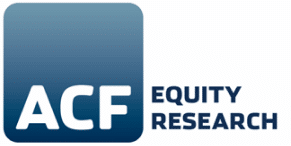A One-Stop Shop for All
Your Publications Needs
Professional Graphic Design and Editorial Service
Inkorporated offers unmatched expertise in editorial services, content creation, and presentation design. Since its inception in 2003, Inkorporated has transformed the way businesses communicate. Over the past 20 years, we have been a trusted partner to hundreds of companies, including investment banks, brokerages, consulting firms, startups, publishing houses, and academic institutions. Our team of skilled editors, content creators, and designers bring a wealth of industry knowledge, precision, and creativity to each project through advanced editing capabilities, dynamic content development, and visually impactful designs. Inkorporated blends interdisciplinary skills, methodologies, and best practices to transform mundane business documents into powerful communication tools, thereby ensuring our clients always deliver impactful and outstanding content. A one-stop shop for all your publication needs, Inkorporated is your partner in creating exceptional communication.
Professional Services in Graphic Design, Content Writing, Editorial and Translation

Design
Our team of design specialists can enhance your documents with consistent placement of design elements and meticulous formatting. Be it infographics, factsheets, marketing materials, manuals or brochures, our team is adept at showcasing your data in a way that it creates meaningful impact and looks attractive to the reader.

Editorial
We understand that language should not be a barrier to fruitful communication and exchange of ideas. We not only specialize in editing, proofreading, and post-edit journal formatting, but also offer comprehensive suggestions for written work, research papers, reports, business communication, and other communication materials.

Content
Bursting with ideas, but hard-pressed for time? This is a challenge faced by many corporate leaders and management team members. Our content, blog, and ghost-writing services are perfect for you. Our skilled specialists will provide suggestions to make the right impact and reach your desired audience, be it website content, white papers, marketing content, etc.
Our Clients
















Client Testimonials

Aranca has helped our firm for over a decade in meeting client demands for information, presentations and data packaged in a professional wrapper on time. They have saved us hundreds of thousands of dollars and thousands of hours of time. Aranca helps us seamlessly integrate large presentations overnight while allowing our people to rest before starting again the next day. We might be one of the most frequent references for the Aranca team. They are practically part of our firm and have been for a decade.

Great results, wonderful pricing, exceptional speed of service. I routinely reach out to Aranca for help with formatting slides, be it for client presentations or publication on our product portal. Bijoy and his team are exceptionally thorough, creative, and fast. Having access to them is a huge value-add for our analysis and engagement, and I treasure working with them so much.

My firm has been leveraging the services of Aranca for several years, and we could not be happier. What impressed us most is their ability to think creatively and make value-added suggestions on executing a project. Even more helpful is their ability to deliver a great project when provided with only a general idea of what we hope to accomplish. We are thrilled with the team at Aranca and look forward to working with them for years to come.

Considering the timelines and the new guidelines, your team did an exceptional job, and we appreciate the willingness to work around the clock to deliver on time. I will most definitely be sending more projects your way soon. I found your rates reasonable and on par with industry standards.

We liked what you and your team produced. You understood the brief first time. We needed a significant refresh on what we had and as one of our team members put it, the difference in your deliverable was ‘night and day’ from what we had. You cooperated very well with our process, timelines and budget, and you were responsive and always there for us. We appreciate your support and dovetailing in with us to make us feel like one team as opposed to two separate ones.

Superlative responsiveness and creativity. The professionals with whom we’ve worked have been significantly responsive. Our working relationship is near seamless, and the quality and dedication is very high!
